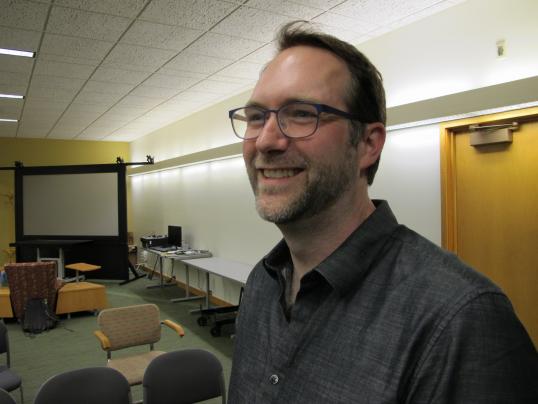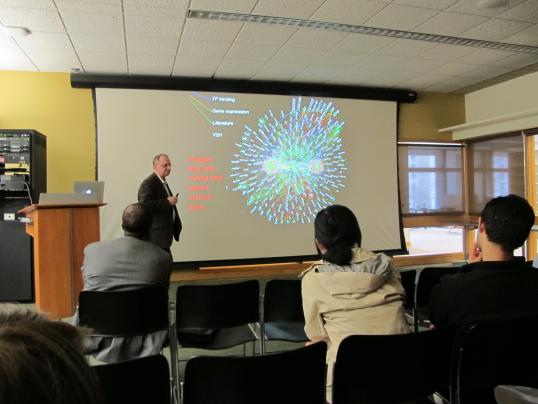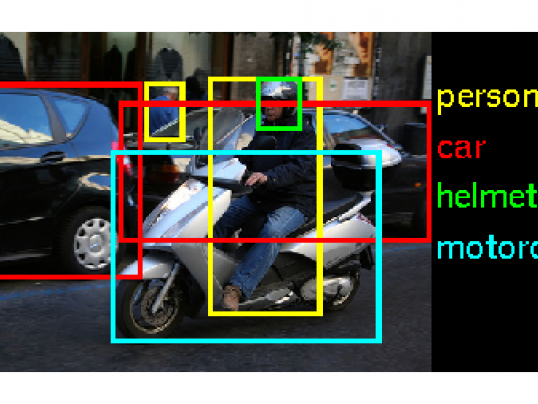Primary tabs

Staff Comes Together for Demo Day
Friday, July 31, 2015
The Research Computing Center’s staff gathered for the inaugural RCC Student Demo Day, a chance for everyone to come together and learn about the projects RCC’s student workers are spending their summer on.

Better Living through Data Visualization
Tuesday, June 16, 2015
Visualizations are interesting from an intellectual point of view, but they can have serious real-world consequences.

Not Just Seeing, but Understanding, Too
Wednesday, May 27, 2015
Data visualization doesn’t have to be limited to time-tested tools like bar charts and scatter plots.

The Big (Data) Picture
Monday, May 18, 2015
The messy complexity of biomedicine is the perfect springboard for Andrey Rzhetsky to discuss getting data for complex networks, combining data sets, and drawing from them some “non-obvious conclusions.”

Knowing Where to Look
Monday, May 4, 2015
Getting a computer to “know what is where by looking” is a lot harder than it, er, looks.